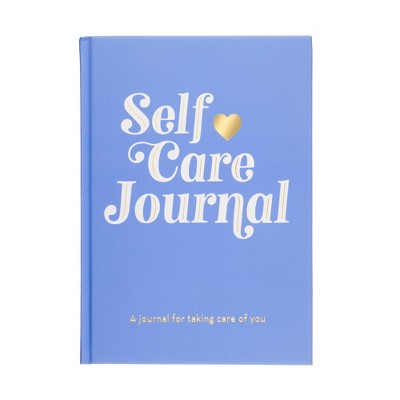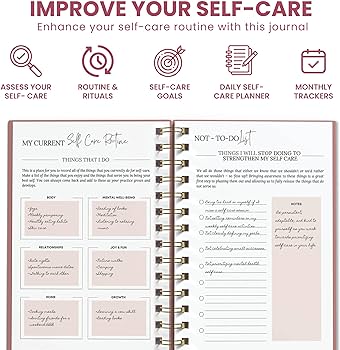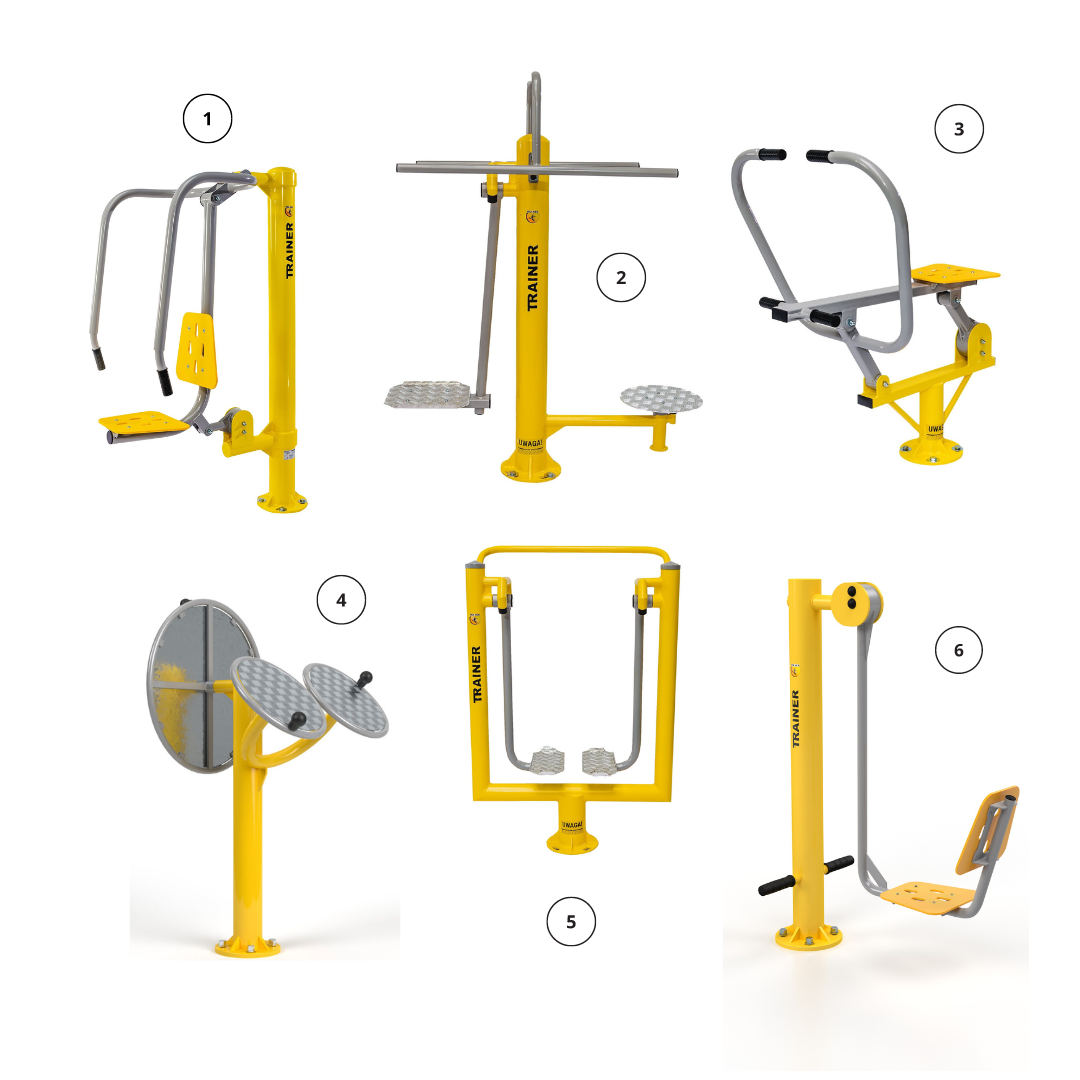Self-care journals help individuals track their mental and emotional well-being. They promote mindfulness and self-awareness.
Self-care journals offer a practical way to monitor your mental and emotional state. By regularly writing about your thoughts, feelings, and experiences, you can gain a deeper understanding of your inner world. This practice encourages mindfulness, helping you stay present and focused.
It also fosters self-awareness, enabling you to recognize patterns and triggers in your behavior. Self-care journals can include gratitude lists, mood trackers, and daily reflections. These elements help you cultivate a positive mindset and manage stress more effectively. Keeping a self-care journal can be a transformative tool for maintaining mental health and achieving personal growth.

Credit: www.amazon.com
Introduction To Self Care Journals
Self care journals are tools to help you focus on your well-being. They help you track your thoughts and feelings. Writing in a journal can improve your mental health. It is an easy way to look after yourself.
People use self care journals to record their daily experiences. They write about their emotions, goals, and achievements. This practice helps them understand themselves better. It also helps them manage stress and anxiety.
Why Journaling Is Key To Self Care
Journaling helps you express your thoughts clearly. It allows you to reflect on your day. By writing, you can identify patterns in your behavior. This insight is crucial for personal growth.
Writing daily helps you stay organized. It keeps track of your goals and progress. You can celebrate your achievements and learn from your mistakes. It makes you aware of your emotional state.
The Rise Of Journaling In Mental Health
Many experts recommend journaling for mental health. Studies show it reduces stress and anxiety. It helps with depression and improves mood.
More people are using journals now than ever. The rise of mental health awareness has boosted journaling popularity. People find it a simple yet powerful tool for well-being.
Journaling is now part of many therapy programs. It is a trusted method to support mental health. It offers a safe space to explore feelings.
Choosing The Right Journal
Choosing the right self care journal is crucial for effective personal growth. The perfect journal can motivate and inspire you. It can also help you maintain consistency in your self-care routine.
Types Of Self Care Journals
There are various types of self care journals, each serving different purposes. Some popular types include:
- Gratitude Journals: Focus on listing things you are thankful for.
- Wellness Journals: Track your physical and mental health.
- Mindfulness Journals: Record thoughts and feelings to stay present.
- Bullet Journals: Combine planning, journaling, and tracking in one place.
- Habit Trackers: Monitor daily habits and routines.
What To Look For In A Good Journal
A good self care journal should have specific features. Here are some key aspects to consider:
| Feature | Importance |
|---|---|
| Layout | Easy to use and visually appealing. |
| Size | Portable but spacious enough to write comfortably. |
| Prompts | Helpful questions or topics to guide your entries. |
| Durability | Quality binding and paper to withstand daily use. |
| Design | Attractive cover to keep you motivated. |
Consider your personal preferences when choosing a journal. This ensures you enjoy and stick to your journaling practice.
The Art Of Daily Reflection
Self-care journals are a powerful tool for personal growth. Reflecting daily helps you understand your thoughts and feelings better. This practice can bring clarity and peace.
Daily reflection in a journal lets you track your progress. It also helps you set and achieve goals. This routine can improve your mental well-being.
Benefits Of Daily Entries
Writing daily in your journal has many benefits. Here are some:
- Improved Mental Clarity: Sorting thoughts on paper clears your mind.
- Stress Reduction: Expressing feelings reduces stress and anxiety.
- Goal Tracking: Daily entries help monitor and achieve goals.
Daily journaling can also boost creativity. Writing freely allows new ideas to flow. This habit encourages self-expression and problem-solving.
Overcoming The Challenge Of Consistency
Keeping a daily journal can be tough. Here are some tips to stay consistent:
- Set a Routine: Write at the same time each day.
- Start Small: Begin with just a few sentences.
- Use Prompts: Questions or quotes can inspire you to write.
Consistency is key to reaping the benefits of journaling. Make it enjoyable, not a chore. Soon, it will become a rewarding habit.
Writing Prompts To Get You Started
Starting a self-care journal can feel daunting. Writing prompts can ease this process. They guide your thoughts and help you reflect. Below are prompts to get you started. These prompts cover both morning and evening reflections.
Prompts For Morning Reflection
- What is one thing you are grateful for today?
- What is your main goal for today?
- Write down three positive affirmations.
- What are you looking forward to today?
- How will you practice self-care today?
Prompts For Evening Reflection
- What went well today?
- What challenged you today?
- How did you practice self-care today?
- What are you grateful for this evening?
- What did you learn today?
| Benefit | Description |
|---|---|
| Clarity | Prompts help clarify your thoughts. |
| Focus | They keep your journaling focused. |
| Consistency | Prompts ensure you write regularly. |
| Insight | They offer deeper insights into your life. |
Starting your day with morning reflection can set a positive tone. Ending your day with evening reflection helps you unwind. These writing prompts ensure you stay on track with your self-care journey.
Creative Ways To Personalize Your Journal
Personalizing your self-care journal makes it uniquely yours. It transforms a simple notebook into a reflection of your personality. Let’s explore some creative ways to personalize your journal that will make journaling even more enjoyable.
Using Stickers And Colors
Stickers add fun and vibrancy to your journal pages. Choose stickers that resonate with your feelings and thoughts. They can represent moods, goals, or favorite quotes.
- Use colorful stickers to highlight important entries.
- Create themes using different types of stickers.
- Incorporate motivational stickers to inspire you daily.
Colors play a significant role in making your journal appealing. Use different colors to categorize entries. For example:
| Color | Category |
|---|---|
| Blue | Gratitude Entries |
| Green | Goals |
| Red | Important Reminders |
Incorporating Photos And Memories
Photos capture moments that words cannot describe. Adding photos to your journal brings your memories to life. Here are some ways to use photos:
- Print and stick your favorite photos on the pages.
- Create a collage of memorable events.
- Use Polaroid photos for a vintage touch.
Memories go beyond photos. Include mementos like:
- Movie tickets
- Concert stubs
- Postcards
These items add a personal touch to your journal. They make the entries more meaningful.

Credit: www.reddit.com
Tracking Progress And Growth
Self-care journals are powerful tools. They help track your progress and personal growth. By documenting your journey, you see how far you’ve come. This motivates you to keep going.
Setting And Reviewing Goals
Setting goals is crucial for personal growth. It gives you direction and purpose. Write down your goals in your journal. This makes them real and tangible.
Review your goals regularly. Check your progress and adjust if needed. This keeps you on track. It also helps you understand what works and what doesn’t.
| Goal | Start Date | Progress |
|---|---|---|
| Read 12 books | Jan 1, 2023 | 5 books read |
| Exercise daily | Feb 1, 2023 | Missed 3 days |
Noticing Patterns And Behaviors
Journaling helps you notice patterns and behaviors. Write about your daily activities and feelings. Over time, you will see trends in your behavior.
For example, you may notice you feel happier after exercise. Or, you may see that certain activities cause stress. Identifying these patterns helps you make better choices.
- Feeling happier after exercise
- Stress from certain activities
- Improved mood after meditation
Use your journal to track these insights. This will guide your self-care routine. It ensures you focus on what truly helps you.
Digital Vs. Traditional Journals
In today’s fast-paced world, self care journals have become essential tools for maintaining mental health. Many people face a choice between digital and traditional journals. Each method offers unique benefits and drawbacks.
Pros And Cons Of Digital Journaling
Digital journaling has gained popularity with the rise of technology. Here are some pros and cons of this method:
| Pros | Cons |
|---|---|
|
|
Combining Digital And Traditional Methods
Many find a balance by using both digital and traditional journals. This hybrid approach can offer the best of both worlds:
- Flexibility: Use digital for quick notes and traditional for deeper reflections.
- Organization: Keep daily logs on your device and special entries in a notebook.
- Backup: Digital entries can serve as backups for important handwritten notes.
By combining these methods, you can enjoy the benefits of both formats. Digital entries offer convenience, while traditional journals provide a tactile experience. This approach allows you to choose the best method for each situation.
Community And Sharing
Self-care journals are a fantastic way to nurture your mental health. They help you reflect, plan, and grow. But the journey doesn’t have to be solitary. Engaging with a community can enrich your experience. Sharing your reflections can offer new insights and build connections.
Finding Journaling Communities
Finding a community that shares your journaling passion can be rewarding. Start with online forums and social media groups. Facebook and Reddit have vibrant journaling communities. Here are some steps to help you find the right group:
- Search for journaling groups on Facebook.
- Join Reddit communities focused on self-care and journaling.
- Participate in Instagram challenges using journaling hashtags.
- Check out local meetups or workshops on Eventbrite.
When And How To Share Your Reflections
Sharing your reflections can be a powerful way to connect. But timing and method are crucial.
| When to Share | How to Share |
|---|---|
| After a significant event | Post in a private group or a trusted forum |
| When you need advice | Ask questions in community threads |
| To celebrate achievements | Share your success stories with friends |
Here are some tips for sharing effectively:
- Be honest but respectful.
- Respect others’ privacy and opinions.
- Use clear and concise language.
Sharing your journaling journey can provide support and validation. It can help you see your progress through different lenses.
Overcoming Common Journaling Obstacles
Self-care journals help in achieving mental clarity and emotional well-being. Yet, many face obstacles that hinder this beneficial practice. Overcoming common journaling obstacles can make a significant difference. Let’s explore some key challenges and how to tackle them effectively.
Dealing With Writer’s Block
Writer’s block is a common issue that can make journaling difficult. Here are some tips to overcome it:
- Start with prompts. Use questions like “What made me happy today?”
- Keep it simple. Write just a few sentences to start.
- Use lists. Jot down things you are grateful for or goals for the week.
Avoid pressuring yourself to write perfectly. Focus on expressing thoughts and feelings freely.
Maintaining Privacy And Security
Privacy is crucial when journaling. Here are some methods to keep your journal secure:
| Method | Description |
|---|---|
| Password-Protected Files | Use digital journals with password protection features. |
| Hidden Journals | Store your physical journal in a secure place, like a locked drawer. |
| Encryption Apps | Utilize apps that offer encryption for added security. |
Maintaining privacy ensures you can write openly without concerns. Choose methods that suit your needs best.

Credit: www.target.com
Frequently Asked Questions
What Should I Write In My Self-care Journal?
Write about your feelings, daily gratitude, goals, self-reflections, and positive affirmations. Include any self-care activities and progress.
What Is The Best Self Reflect Journal?
The best self-reflect journal is “The Five Minute Journal. ” It promotes mindfulness, gratitude, and personal growth.
How Do I Start A Self Improvement Journal?
Start by choosing a dedicated notebook. Set clear goals, write daily reflections, track progress, and review regularly.
What Is A Self Guided Journal?
A self-guided journal provides prompts and exercises for personal reflection and growth. It helps users explore thoughts and emotions independently.
Conclusion
Incorporating self-care journals into your routine can enhance well-being and mindfulness. They offer a simple way to track emotions and goals. Start your journey to a healthier mind today with self-care journaling. Embrace the benefits and see positive changes in your life.
Your mental health deserves attention and care.




Leave a Reply